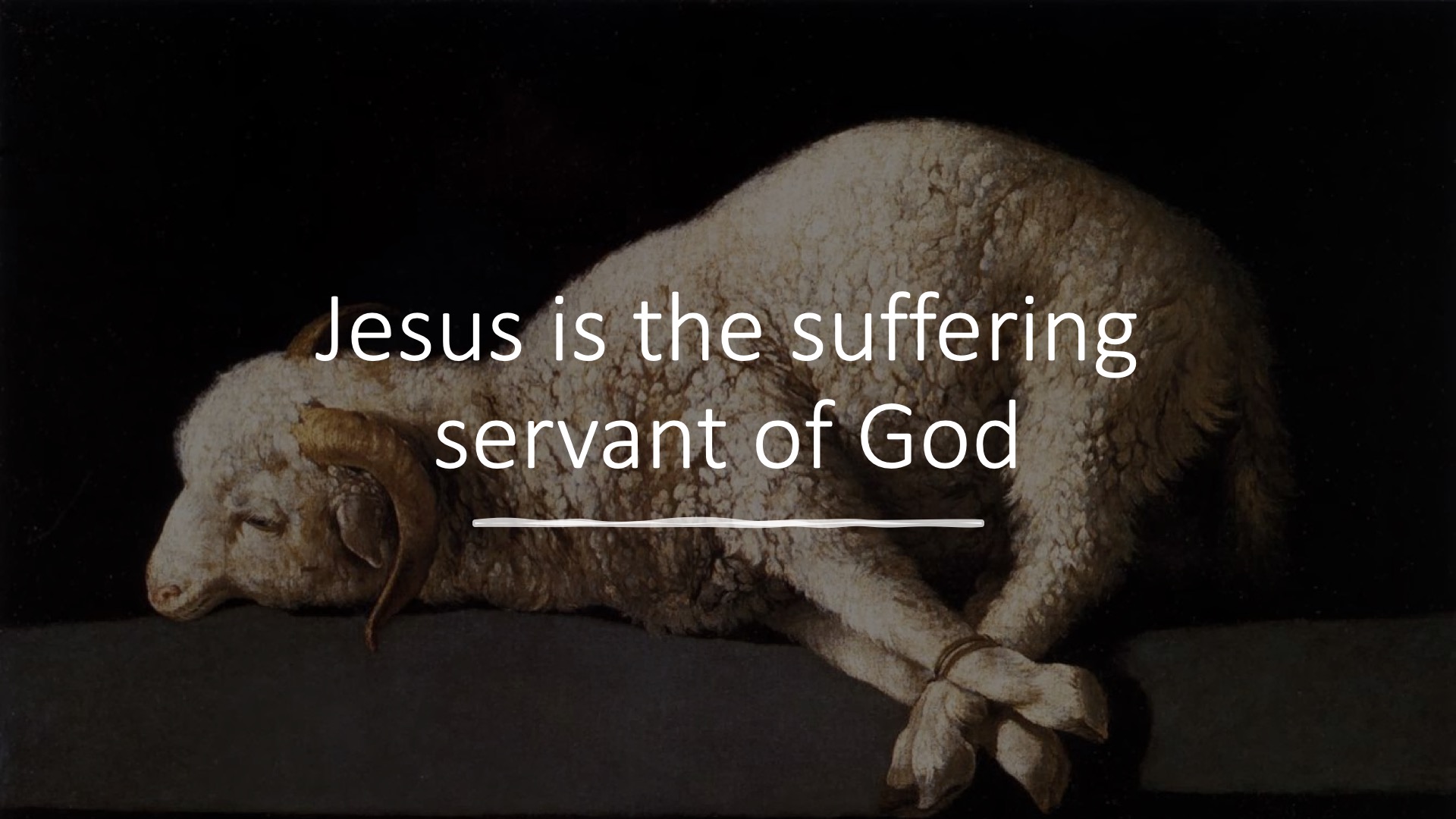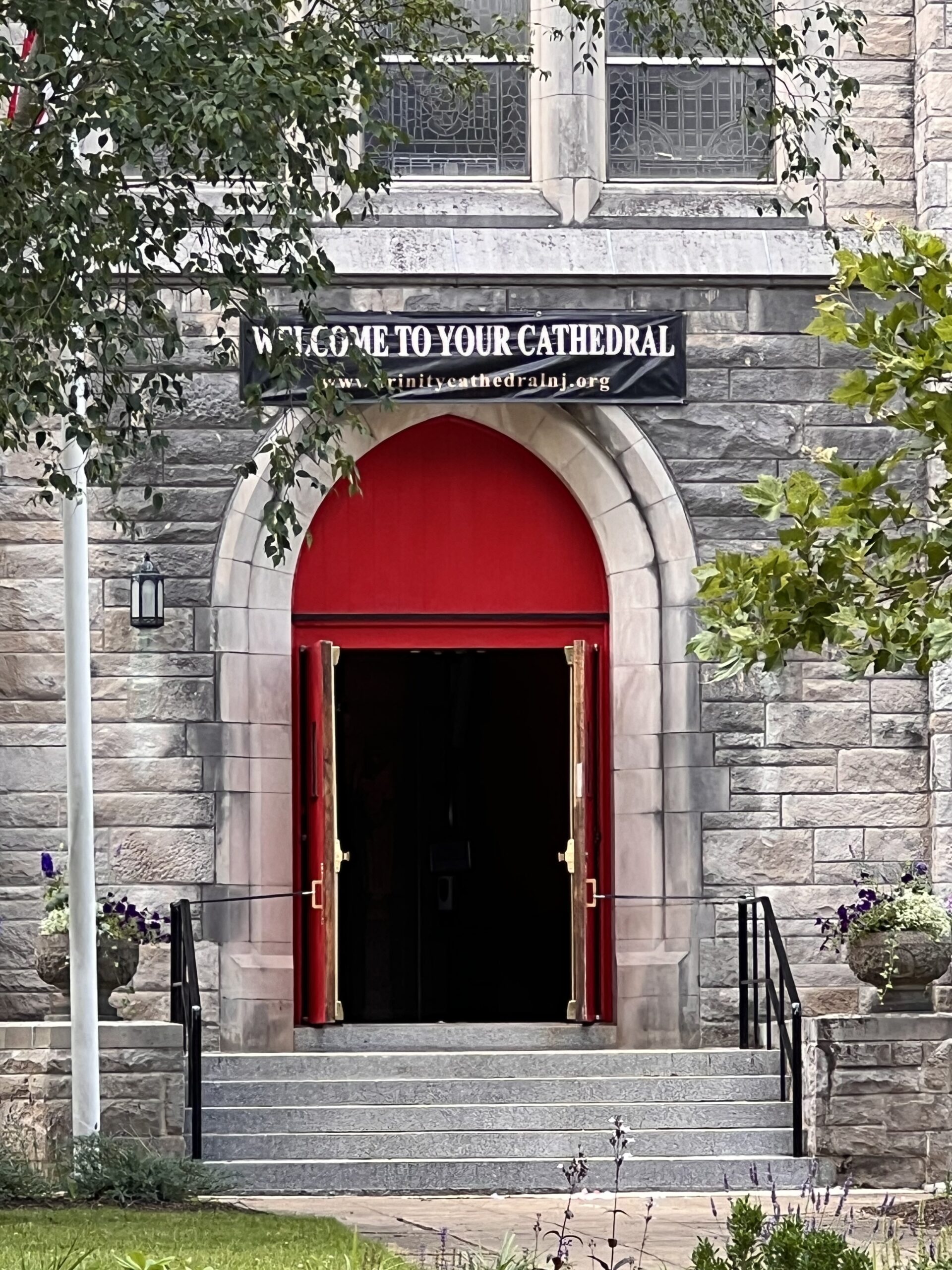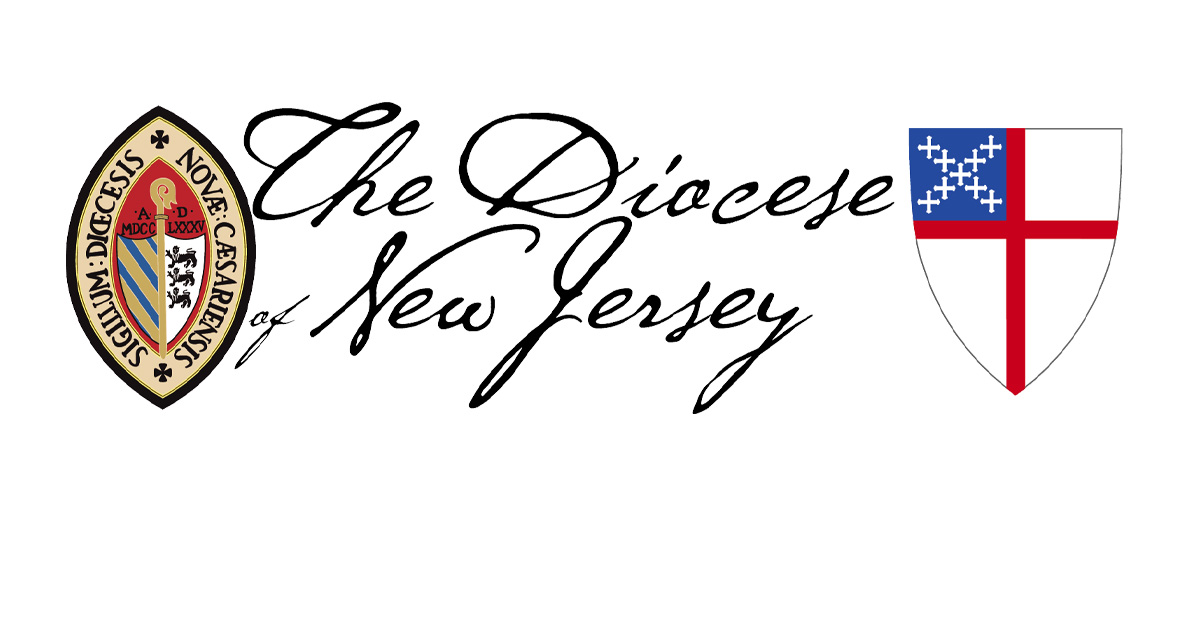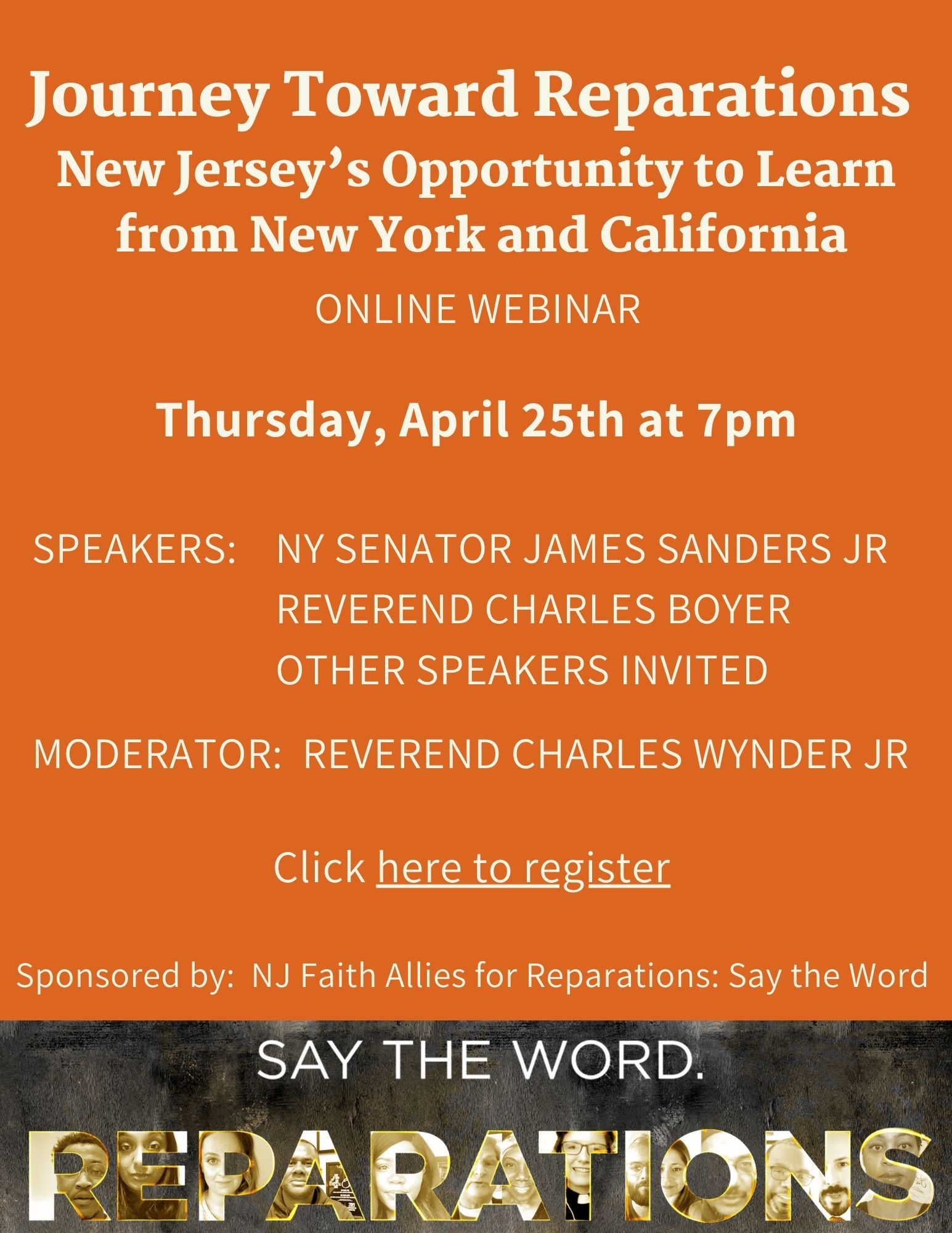The Diocese of New Jersey Online Sermon
16 Pentecost – Proper 19 – Year B – September 12, 2021
Isaiah 50:4-9a, Ps. 116:1-8; James 3:1-12; Mark 8:27-38
Preacher: The Right Reverend William H. Stokes, Bishop of New Jersey
He asked them, “But who do you say that I am?”–Mark 8:29
In the name of the Father and of the Son and of the Holy Spirit. Amen
Twenty years have passed since that fateful day, September 11, 2001. Even today, 9/11 stirs up things in those of us who were alive then; painful things: grief, sadness, anger, loss. We live with an ache. And with the recent events in Afghanistan, the American withdrawal and the suffering this has generated, our ache becomes more complex. The desperate scenes of Americans and Afghanis wanting to get out of Kabul before the fall of the city was heart-wrenching, causing many to wonder about the cost and meaning of it all.
Some asked on that day twenty years ago, and some continue to ask, “Where was God?” My response is always, right there; right there in the selfless sacrifice of all those people who did not think of their own safety, but acted for the sake of others at great risk, and in far too many instances, at the highest cost. Greater love hath no one than this, than to lay down one’s life for one’s friends, Scripture says (John 15:13). On September 11, 2001, that greater love was shown over and over and over again and that’s where God was. That’s where God always is. That is my conviction. That is our conviction as believers in Jesus Christ.
Former Archbishop of Canterbury Rowan Williams was at Trinity Church Wall Street, very close to Ground Zero on September 11, 2001. At the time, he was Archbishop of Wales. He had been invited to speak at a conference on spirituality hosted by Trinity Church.
From his experiences of that awful day, Williams wrote a book, Writing in the Dust: After September 11.[1] In the first chapter of the book a chapter titled “Last Words,” Williams observed the great contrast of language that day between the terrorists who used religious language to justify their heinous acts, and the non-religious language of those on planes and in the Towers who used their final moments to express their love to a person dear to them. It was a contrast between what he labeled the “murderously spiritual and the compassionately secular.”[2]
Williams writes, “Someone who is about to die in terrible anguish makes room in their mind for someone else; for the grief and terror of someone they love. They do what they can to take some atom of that pain away from the other by some inarticulate message on the mobile….”[3]
In the book’s second chapter, “Answering Back,” he has another insight about language, writing, “The day after, there was a phone call from Wales, from one of the news programmes [sicI, and I faced a familiar dilemma. The caller started speaking to me in Welsh, which I understand without difficulty, but don’t always find it easy to use in an unscripted and possibly rather complex discussion. I had to decide: if I answered in Welsh, the conversation would go on in Welsh, and I had some misgivings about coping with it.”
“I am spoken to; I have some choices about how to answer. It seemed a telling metaphor at that particular moment,” Williams observes. “Violence is a communication, after all, of hatred, fear, or contempt and I have a choice about the language I am going to use to respond. If I decide to answer in the same terms, that is how the conversation will continue.”[4]
It’s a provocative observation. Two wars with a high number of military and civilian casualties have occurred in the wake of 9/11. Fear, anger and hatred have grown exponentially, and even caused division in our own country. What language will we continue to use?
Of course, there were many and various responses to 9/11, and there continue to be. And responses differ and especially if one is directly connected to the events of that day. The anguish is still raw for those who were there; for those who escaped and survived; for those who lost loved ones in New York, Washington or Pennsylvania. None of us can speak for them. None of us can, or should tell them how to feel, how to respond, how to grieve.
Still, if we are honest, we must acknowledge that 9/11 seduced too many of us into modes of lasting hatred, fear, anger, prejudice and vengeance. We must ask ourselves, what has happened to us since 9/11? What language do we speak? What language do we speak as disciples of Jesus Christ?
Jesus went on with his disciples to the villages of Caesarea Philippi; and on the way he asked his disciples, “Who do people say that I am?” And they answered him, “John the Baptist; and others, Elijah; and still others, one of the prophets.” He asked them, “But who do you say that I am?”(Mark 8:27-29).
Jesus’ exchange with his disciples on the road to Caesarea Philippi is a turning point moment in the Gospel. Exactly half-way through the Gospel of Mark. Jesus asks his disciples “Who do people say that I am?” They answer him, “Some say John the Baptist; and others, Elijah; and still others, one of the prophets.” Jesus then asks them, “But who do you say that I am?” I think this is the most important question in the New Testament. Who do you say that I am?
This question was asked of those disciples on the road to Caesarea Philippi back then and they had to answer it for themselves. It is asked of every Christian in every age, including us today. “Who do you say that I am?” Jesus asks.
Peter was the first to answer that question. “You are the Messiah” (Mark 8:29). It’s such an important answer, the church has established a feast to honor it: The Feast of the Confession of St. Peter, on January 18 of each year. After Peter makes his confession, Mark tells us that Jesus “sternly ordered them not to tell anyone about him” (Mark 8:30). This is a recurring theme throughout Mark’s Gospel, probably reflecting the fact that Jesus and his ministry couldn’t be fully understood until it was all accomplished. Jesus hints at this in what he says next to his disciples. Mark tells us, “Then he began to teach them that the Son of Man must undergo great suffering, and be rejected by the elders, the chief priests, and the scribes, and be killed, and after three days rise again” (Mark 8:31-32). Mark observes that “He said all this quite openly.”
It is Jesus’ first passion prediction in the Gospel. It is, if you will, a “crossroad” moment. Mark tells us Peter took Jesus aside and “began to rebuke him” for the language he was employing (Mark 8:32).
For Peter, the notion of a Messiah of God, an anointed one, a new David, undergoing great suffering, being rejected, being killed, was all nonsense and foolishness. As noted preacher and teacher David Lose observes, “Peter, we, and just about everyone we’ll ever know want a strong God, a God who heals our illnesses, provides ample prosperity, guarantees our security, urges our military and sports teams onto victory, and generally keeps us happy, healthy, and wise.”[5]
Jesus turns and looks at his disciples. Seeing them, perhaps sensing something of a mutiny developing, Jesus rebukes Peter, saying to him, “Get behind me, Satan! For you are setting your mind not on divine things but on human things” (Mark 8:33). It is a startling reversal. Peter had said the right words in his confession, “You are the Messiah.” But he had the wrong understanding on what those words meant to Jesus. He and Jesus were speaking a different language.
Jesus doubles down. He calls the crowd with his disciples, and says to them, “If any want to become my followers, let them deny themselves and take up their cross and follow me. For those who want to save their life will lose it, and those who lose their life for my sake, and for the sake of the gospel, will save it” (Mark 8:34 – 35). It is an extraordinary teaching on discipleship.
At this crossroad moment on the way to Caesarea Philippi, Jesus teaches his disciples, and anyone who will listen, not only about what it means to him to be Messiah, to be the Christ,“that the Son of Man must undergo great suffering, and be rejected, and be killed, and after three days rise again;” he also teaches them what it means to be a disciples of his: “If any want to become my followers, let them deny themselves and take up their cross and follow me.”
Jesus is the suffering servant of God, like the one referred to in today’s appointed reading from the book of Isaiah.[6] He is the personification of radical love that is totally self-giving for the sake of God and God’s kingdom; the one who rejects violence and hatred of others. Being a follower of his means embracing these values for and in ourselves – denial of our own self-interests, servanthood for the sake of others, going out to find the hurting of the world, sacrificing and suffering for the sake of others; rejecting violence and hatred. It’s about discipleship, costly discipleship. In our consumerist, selfish, violent society, this is a hard sell. Nonetheless, it is the life and ministry we are called to. It is the way of the cross.
Who you say that I am? Jesus asked Peter and those first disciples. Who do you say that I am? Jesus asks us today.
You are the Messiah, Peter answered. You are Messiah, we respond as well. What language are we speaking?
Are we speaking the language of Jesus and the cross? Or are we speaking the language of our world and its categories of prestige and power? How do our lives reflect our response to Jesus and his love, his radical love for the world? Do they reflect a spirit of selfless-sacrifice like that of so many who gave their lives for the sake of others on September 11, 2001? Or are we speaking a different language?
How do you answer?
____________________
Notes
[1] Williams, Rowan Writing in the Dust: After September 11 (Grand Rapids, MI and Cambridge, UK: William B. Eerdmans Publishing Company, 2002.
[2] Williams, Chapter 1 “Last Words” 6ht paragraph Kindle edition location 72 – 73
[3] Williams, Chapter 1 “Last Words” 6th paragraph Kindle edition location 34 – 37
[4] Williams, Chapter 2 “Answering Back” 2nd paragraph beginning at Kindle location 73 – 75
[5] Lose, David “Pentecost 16B: Intriguing, Elusive, Captivating and Crucial” – Found on the blogsite In the Meantime – Posted September 7, 2015 – https://www.davidlose.net/2015/09/pentecost-16-b-intriguing-elusive-captivating-and-crucial/
[6] For a thoughtful reflection on this idea see McGlone, Mary M “The Suffering Servant” – Scripture for Life Blog – published April 8, 2017 on The National Catholic Reporter website and found at https://www.ncronline.org/blogs/spiritual-reflections/suffering-servant















